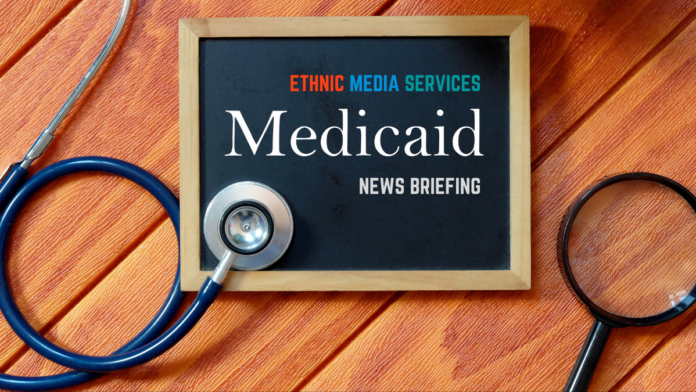Vidya Sethuraman
India Post News Service
The nation’s largest health insurance program, Medicaid currently provides free or low-cost coverage to more than 83 million people in the US. But approximately 23 million—including 3 million children—have lost or stand to lose coverage due to the end of pandemic-era continuous coverage protections, also known as “the great unwinding.”
Of the 23 million people who will lose or have lost coverage, 69 percent have been disenrolled not because they were ineligible, but because of paperwork and procedural technicalities. Expanding Medicaid to close the coverage gap is one of the most significant ways states can increase coverage rates and achieve health equity, particularly after the unwinding. Yet 10 states, largely in the South, still choose not to expand their Medicaid programs under the Affordable Care Act.
These states have some of the worst health inequities in the country.
Speakers at the EMS briefing on August 9 discussed how to strengthen the Medicaid program to provide equitable health coverage to all and why states must act to close the coverage gap that disproportionately affects communities of color.
Katherine Hempstead, Senior Policy Adviser at the Robert Wood Johnson Foundation said that there are 82 million people enrolled in Medicaid, almost half of them are children; 63% of adult beneficiaries are workers while 47% of all minors with special needs are covered by this program. “Medicaid was designed as a federal-state alliance, and in poorer states the federal government pays more. Each state has its own program. So we’re talking about 50 different programs.” She mentioned that some of the states with the largest gaps in health coverage are Texas and Florida. On the other hand, she noted that some states have decided to provide health coverage to immigrants through Medicaid and sometimes through their insurance market. “Some have covered children, others like Illinois have covered seniors; and California and New York are there.”
Martha Sanchez, Health Policy and Advocacy Director at Young Invincibles said young people need health care because they get sick and face chronic illnesses. “Studies show that at least half of young adults, ages 18 to 34, suffer from a chronic condition such as obesity, diabetes, cancer; and a third between 18 and 24 years old face a mental health crisis with symptoms of depression, anxiety and loneliness.” She explained that many young adults have grown up in low-income families with Medicaid, but are being left out because there is no expansion of this program, or because they are becoming college students and do not know that there are private plans accessible to them. Our goal is to provide health information to young people, so that they remain in Medicaid if they are eligible for expansion, that they know how to renew it, that they know their benefits; and those who do not qualify are informed of other accessible options.”
Joan Alker, Executive Director and Co-Founder of the Center for Children and Families and Research Professor at Georgetown University said many of the children who lost Medicaid during the cancellation period are still eligible. “We need to re-enroll them, particularly as they go back to school.” Medicaid is vital coverage for children, particularly in communities of color with mixed immigrant status families. Alker encouraged parents whose children have been left without Medicaid to seek assistance in their communities, clinics and schools because they are likely still eligible and able to enroll them.
Also Read: Alaska woman sentenced for Medicaid fraud







